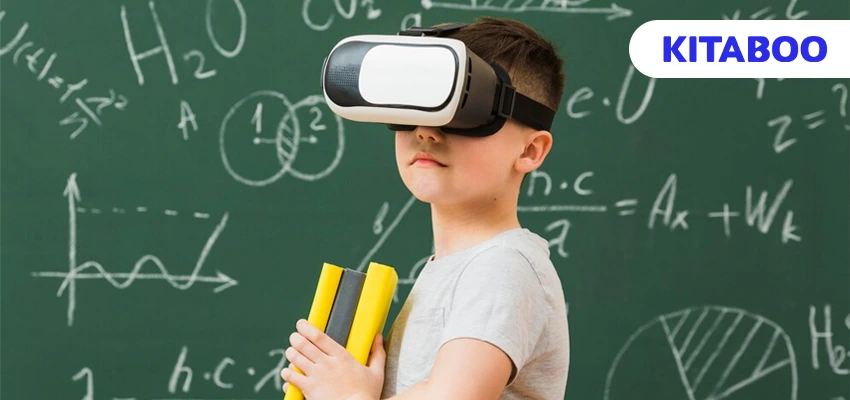
The Ethical Implications of AI in Education
Summarize this blog with your favorite AI:
Artificial intelligence is transforming the K12 educational landscape in unprecedented ways, including personalizing language learning, tailoring assessments to each student’s pace, and much more.
According to EdTech Magazine, 42% of educators who use AI report a reduction in administrative workload. These advancements offer students, educators, and administrators more individualized, easily accessible, and enlightening educational experiences.
These developments need to be weighed against significant ethical concerns as we move forward. Future developments in AI systems for K–12 education could raise a variety of issues, including responsibility for educators, privacy, equity, and data security.
This blog covers a wide range of issues, including adaptive assessments, special needs support, language learning, and teacher preparation, as we explore the benefits and ethical implications of artificial intelligence (AI) in education.
Table of Contents:
I. Ethical Implications in AI-Driven Education
- Privacy and Data Security
- Equity and Accessibility
- Teacher and Student Autonomy
- Accountability and Transparency
II. AI for Language Learning: Enhancing Communication Skills with Care
III. AI in Special Needs Education: Empowering Diverse Learners
IV. Adaptive Assessments and Personalized Learning: Balancing Innovation with Fairness
V. AI for Teacher Professional Development: A Support, Not a Replacement
VI. Key Takeaway
Ethical Implications in AI-Driven Education
With the integration of AI into the fabric of K12 education, there is an imperative for challenges that arise in ethical decision-making regarding the responsible use of this technology.
One of the primary ethical considerations is as follows:
1. Privacy and Data Security
AI systems would work best on large, comprehensive amounts of information regarding the performance and other learning behaviors of students and, in some instances, even their socio-emotional metrics.
The risks here include unauthorized access, misuse, and breaches of student privacy, all of which may compromise sensitive data. Student data must be protected, and data governance must be rigorous for true trust to be established in AI systems within education.
2. Equity and Accessibility
AI algorithms can inadvertently introduce biases, thus resulting in discriminatory outcomes for certain students relative to others.
For example, AI-based language tools or adaptive assessments are likely to fail a non-native speaker or a person who comes from a different culture. Similarly, the school’s funding could determine accessibility to AI resources, as it might create disparities between schools with sufficient resources and those lacking sufficient resources.
3. Teacher and Student Autonomy
AI is likely to jeopardize teacher roles and student autonomy because it automates some aspects of education.
Depending on AI systems, teachers might lose the subtle individualized decisions that affect students. Caution needs to be exercised to ensure that AI supplements rather than replaces such learning to avoid undermining trust and spark collaborative learning environments.
Educators can partner with digital textbook platforms like KITABOO to ensure that AI acts as a supplement rather than a replacement.
With DRM (Digital Rights Management) protections and customizable content, KITABOO enables teachers to maintain control over the learning experience while utilizing AI to enhance student engagement and provide personalized learning pathways.
4. Accountability and Transparency
As AI algorithms make more decisions in the classroom, there is a growing need for open accountability in the decision-making process.
If the processes used by AI systems to handle and assess student data are opaque, it may be challenging to understand the logic behind some recommendations or assessments.
This uncertainty may cause parents, children, and teachers to distrust one another. Ethical AI integration requires systems to operate transparently so that stakeholders may understand and question the processes used to obtain AI-generated results.
AI for Language Learning: Enhancing Communication Skills with Care
AI turns out to be a useful tool for language learners. It suggests customized exercises with instant feedback and personalized study paths, which results in K12 students becoming more engaged and learning faster.
Interactive vocabulary, pronunciation, and grammar practice, even by AI-based language tools, can be the best way to practice learning vocabulary, pronunciation, and grammar.
These programs can learn each student’s rate of progress and then offer exercises that better target their needs. This will help them better understand difficult concepts and perfect their skills.
Many benefits accompany AI language tools, and these are longed for through careful design and deployment. Algorithms that carry cultural bias or that have been poorly programmed can slow down or hinder students’ progress more than assist them.
AI in Special Needs Education: Empowering Diverse Learners
AI could prove very supportive for students with special needs or learning difficulties; hence, it can build an inclusive learning environment. AI would make it possible to tailor content to the unique learning needs of every student, including those with dyslexia, ADHD, and other special needs.
AI-based learning tools may be individualized in instruction, allowing varied needs to be met through accessible, participatory content. For instance, an AI may offer audio versions of text for a child to listen to who may have dyslexia, or an AI may facilitate understanding through eye-catching visuals.
These tools will empower students, making them feel much more supported and included in their learning journeys.
Adaptive Assessments and Personalized Learning: Balancing Innovation with Fairness
Adaptive assessments change questions and content based on students’ responses, making personalized learning pathways possible. This encourages active participation and helps the student work at his/her own pace.
Adaptive assessments provide students with a personalized learning experience. They allow work to be done at a student’s pace that suits his or her abilities. This may reduce the pressure and anxiety associated with taking standardized tests, making assessments fun and fruitful.
On this note, KITABOO, as a dynamic digital textbook platform, comes in handy. It not only offers adaptive assessments that cater to individual learning speeds but also ensures fairness by providing personalized content that aligns with each student’s unique strengths and needs.
AI for Teacher Professional Development: A Support, Not a Replacement
AI can play a pivotal role in teacher professional development by creating personalized learning modules and resources tailored to individual teaching styles.
It can also provide actionable feedback on areas for improvement, such as classroom management or teaching strategies. By analyzing performance data, AI offers teachers insights and suggestions to enhance student engagement and curriculum delivery.
This technology is particularly valuable for educators in remote areas, where access to traditional professional development opportunities may be limited. Rather than replacing teachers, AI acts as a supportive tool that empowers educators to improve and meet the diverse needs of their students continually.
Key Takeaway
AI is now to be integrated into K12 education on an enormous scale and includes essential ethical considerations to explore that potential responsibly.
As AI-based tools are increasingly used, educators, policymakers, and developers must collaborate to decide on priorities for student well-being, equity, and teacher empowerment.
For K12 publishers, embracing responsible AI means partnering with platforms like KITABOO. We provide AI-powered tools that enhance learning while upholding ethical standards, accessibility, and effectiveness.
Let’s work together to create a learning experience that’s not only innovative but also ethically grounded. Connect with KITABOO today to explore how we can shape a future where AI serves students and educators responsibly.
Discover how a mobile-first training platform can help your organization.
KITABOO is a cloud-based platform to create, deliver & track mobile-first interactive training content.


